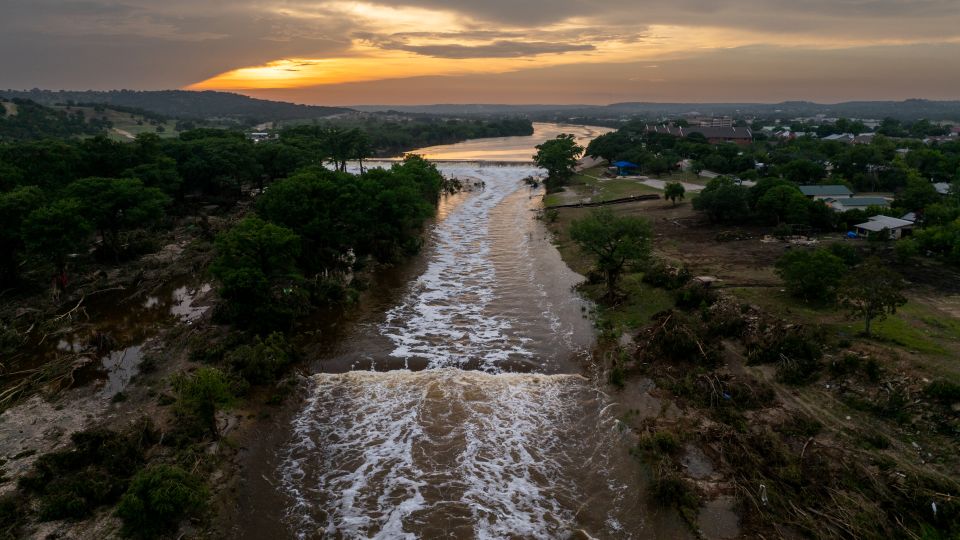The Trump administration has changed course and is moving ahead with work to develop a new database that would provide Americans with precise estimates of their flash flood risk in a warming world, according to a National Oceanic and Atmospheric Administration official and an internal NOAA email seen by CNN that was sent Friday morning.
The administration had paused work on the portion of the database, known as Atlas 15, that is designed to show how a warming world is amplifying flood risks. The database would be the first such resource to take this into account and would have applications for everyone from civil engineers to prospective homeowners.
After reporting by CNN and the Washington Post this week and following discussions between NOAA leadership and Commerce Department officials, NOAA received permission to move forward with both parts of the analysis through fiscal year 2026, the official said.
As CNN previously reported, the pause came during a summer of deadly flash floods, including the disastrous flash flood event in Texas on the night of July 4 that killed at least 130 people.
CNN has contacted NOAA for comment.
unknown content item
–
Atlas 15 would replace the outdated database of precipitation frequency estimates, known as Atlas 14, that does not take climate change to date into account, let alone future warming.
Global warming is increasing the frequency and severity of extreme precipitation events, yet US infrastructure is currently designed based on Atlas 14’s outdated information about the size and frequency of 100-year precipitation events.
In other words, designers and builders of infrastructure in this country conduct their work with the notion that the worst rainfall events are occurring less frequently and are less severe than they are.
The first phase of Atlas 15 updates the precipitation frequency estimates across the country but does not include climate change projections. That volume is slated to come out later this year and had not hit roadblocks.
The second phase of Atlas 15, whose contracts were paused until Friday, is slated to come out in 2026.
Contracts for work on Atlas 15 had been paused for about a month, raising suspicions that the project was in jeopardy due to its climate change content. Recently, the Trump administration has taken down the climate.gov website, disbanded experts working on a congressionally-mandated national climate assessment and pursued other actions to stifle climate science research.
When combined, the two volumes would comprise a national, interactive database of precipitation frequency estimates, including future projections, such as the statistical likelihood of a 100-year rainfall event at a particular spot each year. (A 100-year rainfall event is one that is so intense, it is only expected to occur once every 100 years on average.)
The database will have information on how the likelihood and severity of 100-year rainfall events, as well as even rarer events – such as 1,000-year rainstorms, will shift depending on how much the planet warms during the next several decades.
Atlas 15 is supposed to move NOAA, and those who depend on the agency, from an outdated assumption that the climate of today is roughly equivalent to that of several decades ago to a recognition that precipitation extremes are in the process of changing due largely to the burning of fossil fuels for energy and transportation.
A pilot phase of Atlas 15, containing present day precipitation risk estimates solely for the state of Montana was released last year. It also shows how rainfall rates for 100-year events could increase with continued global warming.
The Montana estimates include projections for precipitation frequency estimates at 3 degrees Celsius of global warming as well as 1.5 degrees of warming. The world has already warmed by at least 1.2 degrees.
For more CNN news and newsletters create an account at CNN.com

